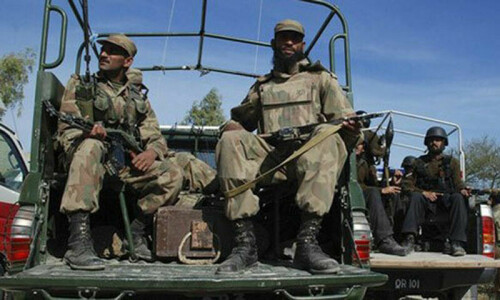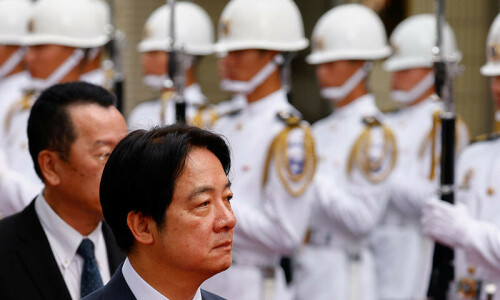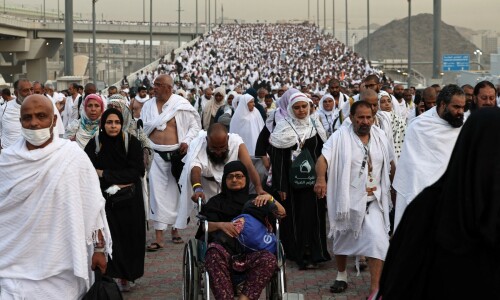ISLAMABAD: In the corner of a pristine park in Islamabad, an open-air classroom run by an aging rescue-worker offers a beacon of hope to the poor.
For the past 30 years Master Mohammad Ayub, who defuses bombs and extinguishes fire during the day, cycles from office to the makeshift school to teach children from surrounding slums for free.
In a country where education is underfunded and 24 million children are deprived of schooling, grey-haired Ayub, 58, is hailed as a hero for working towards a better future.
“I was rescued from the darkness of illiteracy by an angel in the shape of Master Ayub when I was nine and collecting firewood,” Farhat Abbas, now 20, said.
Abbas assists Ayub with classes and is pursuing a bachelor’s degree from a local university.
A humble start
The story of Master Ayub’s school began in 1986 when he moved to the capital from the agricultural town of Mandi Bahauddin, in Punjab.
With its wide boulevards arranged in a grid, a stunning view of the Margalla hills and monuments, Islamabad was a world away from the young man’s hometown.
He recalls: “When I arrived, I was puzzled to see small children working in the streets, begging or cleaning cars or selling flowers and I wondered how come they have to do this in a posh capital city.’’
One day he came across a boy washing cars at the marketplace and asked him why he wasn’t in school. “I asked him if he wanted to study and he said ‘yes’. Right there I gave him a notebook, a book, a pencil and an eraser and started teaching him,” said Ayub, a high school graduate himself who left college before finishing his degree.
“The next day the boy brought another fellow with him, and within a week there were 50 children in my class.”
Initially he taught them in a corner of the marketplace, but was shooed away by the shopkeepers.
He shifted to a place outside a government school, but authorities asked him to leave since influential people living nearby had complained.
He finally shifted in the park, which is near a slum where Christian families reside.
Belated recognition
Founded in 1960, Islamabad was envisaged as a city for the country’s political and bureaucratic elite, but has been criticised for lacking public housing for the poor, who work menial jobs.
As a consequence, numerous slum areas cropped up throughout the city, but because their domiciles are not legally recognised many find it hard to get their children enrolled in registered schools.
Hina Shahbaz, 17, said she moved with her parents to Islamabad two years ago. “Because of the paperwork needed I couldn’t get admitted into a school right away,” she said. She started attending Ayub’s classes, while he tried to get her enrolled at a registered school. She continues to teach young students and is also taking math tuitions from her senior. “I like science and I want to become an engineer,” she said.
The initial years of the journey were difficult, he said, recalling how he was suspected by authorities as to why he was teaching so many Christians, suspecting he might be a missionary (Ayub is a Muslim).
The suspicion and surveillance gave way to belated recognition, including awards by the Ministry of Education in 2012 and a presidential award last year.
Ayub, however, says he isn’t doing this for accolades.
“I started this work because if these children do not get education, they will fall into wrong hands, become criminals or terrorists. I want them to study and join the police, army, become doctors and engineers.”
As he approaches 60, he says the time has come to build a lasting legacy so that his work can be carried forward.
“I want to teach these children how to use computers. I have bought some space here and built two rooms... I want to leave a facility behind after my death where these children continue to get the light of education.’’
Published in Dawn October 22nd, 2016














































Dear visitor, the comments section is undergoing an overhaul and will return soon.